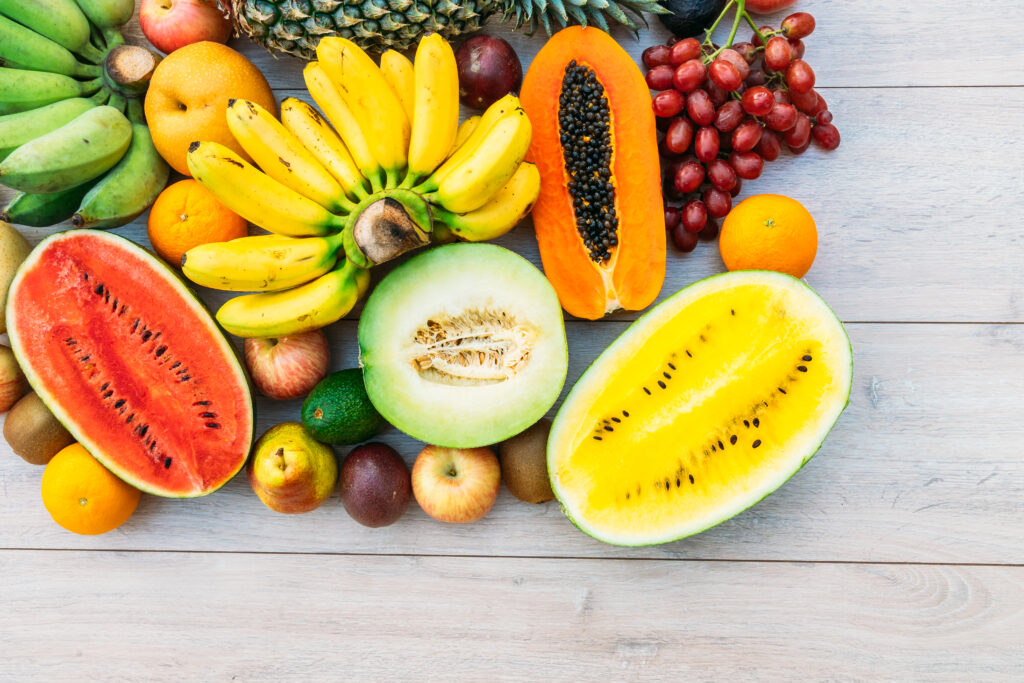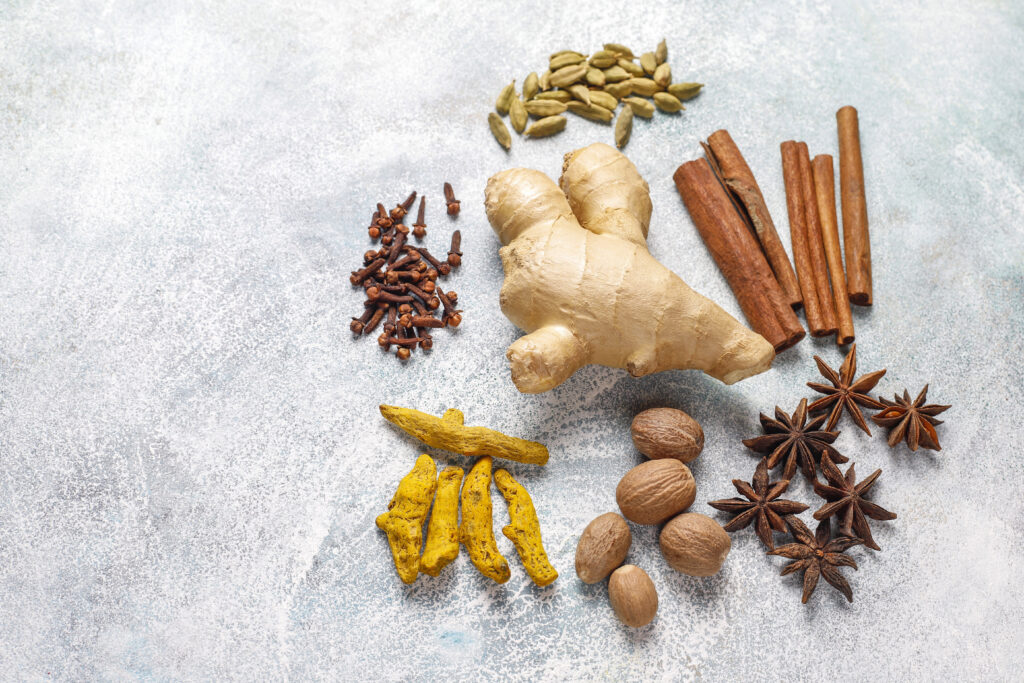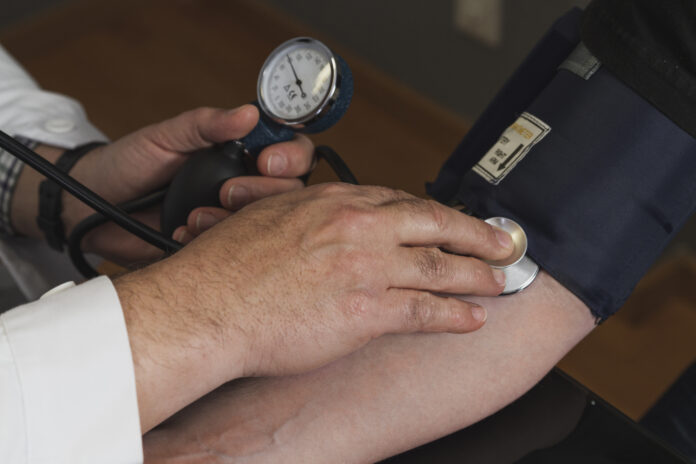Diet plays a crucial role in determining blood pressure levels and overall heart health. The Foods we consume can either contribute to or mitigate the risk of high blood pressure (hypertension) and cardiovascular diseases. It is a certified fact that maintaining a healthy diet is indispensable to control Blood Pressure Naturally. Incorporating certain foods into your daily diet can help control blood pressure naturally. Research has shown that the best foods to control blood pressure are also beneficial to maintain a healthy weight and significantly useful for reducing the risk of heart disease. By making mindful choices about the foods we eat, focusing on a balanced diet rich in fruits, vegetables, whole grains, lean protein, and healthy fats with reduced sodium intake, you can positively impact blood pressure regulation which ultimately supports long-term heart health.
The Best Foods to Control High Blood Pressure
The balanced diet contains foods that are rich in nutrients, low in sodium, and focused on whole grain foods. Such types of foods are effective for controlling blood pressure naturally with a great improvement in overall well-being. Regular physical activity, maintaining proper weight, and managing stress are also important components of a holistic approach to hypertension management.
A Heart-Healthy Diet: The Foundation for Managing Hypertension: A heart-healthy diet forms the cornerstone of managing hypertension (high blood pressure) effectively. This type of diet focuses on consuming nutrient-rich foods that promote overall health and produce defined power to fight diseases.
The Role of Nutrition in Managing High Blood Pressure: As discussed earlier health-related complications including cardiovascular disorders, contribute to elevating the levels of blood pressure in your body. So adopting some best foods to control blood pressure naturally can significantly impact your hypertension issue. Hence, focusing on nutrient-dense, low-sodium diets, reduces the need for medication. You can add to the effectiveness of the best foods for controlling your blood pressure by incorporating a routine of some physical activity and stress management activities. These practices with weight managing exercises are interventions for optimal blood pressure control. Fruits: Nature’s Blood Pressure Regulators
Fruits: Nature’s Blood Pressure Regulators
Fruits serve as nature’s blood pressure regulators due to their rich nutrient content. They are packed with potassium, fiber, and antioxidants, which contribute to healthy blood pressure levels. Potassium is a mineral nutrient that helps to maintain sodium levels in your body while magnesium relaxes your blood vessels, promoting better blood flow. The fiber content aids in cholesterol reduction and satiety, supporting weight management, another crucial aspect of controlling blood pressure naturally. Antioxidants in fruits help combat inflammation and oxidative stress, further benefiting cardiovascular health. Thus, including a variety of fruits in your diet is a delicious and effective way to maintain optimal blood pressure.
Berries: Rich in Antioxidants and Fiber: Berries are a powerhouse of antioxidants and fiber, offering numerous health benefits. The antioxidants protect cells from damage and reduce inflammation, while the fiber aids in digestion and promotes satiety. Including berries in your diet can support overall well-being and contribute to a healthy lifestyle.
Bananas: High in Potassium, Low in Sodium: Bananas are potassium-rich fruits with low sodium content, making them ideal for maintaining healthy blood pressure levels. Potassium helps counter balance the effects of sodium in the body, promoting heart health and regulating fluid balance.
Oranges: Vitamin C and Flavonoids for Heart Health: Oranges or citrus fruits are sources of vitamin C and flavonoids, beneficial for heart health. Vitamin C supports collagen production and antioxidant activity, while flavonoids help reduce inflammation and improve the functions of blood vessels.
Watermelon: Lycopene and Citrulline for Blood Pressure: This fruit is rich in Lycopene and Citrulline, offering benefits for blood pressure regulation. Lycopene is an antioxidant that helps protect cells and reduce inflammation in blood vessels while Citrulline supports blood flow.
Vegetables: Essential for Blood Pressure Control
The nutrient density of vegetables makes them suitable for blood pressure regulation. They are rich in potassium, magnesium, and fiber which contribute to controlling blood pressure naturally. Their regular consumption in the correct proportion aids to your overall well-being.
Leafy Greens: Potassium, Magnesium, and Calcium for BP: Spinach, Kale, and Swiss chard are categorized as leafy greens, packed with potassium, magnesium, and calcium, all are beneficial to control your blood pressure. Calcium is best for regulating muscle function in your body while others are good for promoting heart health and blood flow.
Beets: Nitrates for Vasodilation and Lowering BP: Beets are full of nitrates, which the body converts into nitric oxide, a compound that promotes vasodilation and improves blood flow. This vasodilation effect helps lower blood pressure by reducing resistance in the blood vessels.
Carrots: Beta-Carotene and Fiber for Heart Health: Carrots are packed with beta-carbonate, an antioxidant that converts to vitamin A in the body, reducing inflammation. Additionally, carrots are rich in fiber to help in digestion, promote satiety, and contribute to your overall health.
Sweet Potatoes: Fiber and Potassium for BP Management: Sweet potatoes are a nutritious choice for blood pressure management. They are rich in fiber, promote digestive health, and contain potassium, which helps balance sodium levels to regulate blood pressure.
Whole Grains: Fiber and Nutrients for Heart Health Oats: Soluble Fiber for Lowering Cholesterol and BP: Oats are considered a powerhouse of soluble fiber, known for their cholesterol-lowering benefits. These soluble fibers in oats bind to cholesterol in the digestive tract, preventing their absorption and lowering LDL cholesterol levels. This also contributes to blood pressure management, making oats a heart-healthy addition to your diet.
Oats: Soluble Fiber for Lowering Cholesterol and BP: Oats are considered a powerhouse of soluble fiber, known for their cholesterol-lowering benefits. These soluble fibers in oats bind to cholesterol in the digestive tract, preventing their absorption and lowering LDL cholesterol levels. This also contributes to blood pressure management, making oats a heart-healthy addition to your diet.
Brown Rice: Magnesium and Fiber for Blood Pressure: Brown rice is a nutritious whole grain rich in magnesium and fiber, both are beneficial for blood pressure management. Magnesium works to relax your blood vessels for smooth blood flow which is essential for normal blood pressure. Fiber content supports your digestive system.
Quinoa: Protein, Fiber, and Minerals for Heart Health: Quinoa is a nutrient-dense grain packed with protein fiber, and essential amino acids making it a great choice for heart health. The combination of protein and fiber promotes weight management and supports satiety, while minerals like magnesium and potassium contribute to regulating your blood pressure.
Lean Proteins: Essential Building Blocks for the Heart
Chicken Breast: Lean Protein for Heart Health: Chicken breast is a rich source of lean protein that supports your metabolism. It is low in fats and cholesterol, making it beneficial for maintaining healthy cholesterol levels. Including chicken or white meat in your diet helps to reduce risk factors of elevated blood pressure.
Fish: Omega-3 Fatty Acids for Cardiovascular Health: Fish is rich in omega-3 fatty acids, such as EPA and DHA, which are essential for cardiovascular health. These fatty acids have anti-inflammatory properties, support healthy blood vessels, lower triglyceride levels, and reduce the risk of high blood pressure.
Tofu: Plant-Based Protein for Lowering Blood Pressure: Tofu is a plant-based protein that can help to lower blood pressure. It also contains isoflavones, which have been linked to your blood vessel functionality and aid in reducing the risk factors of hypertension.
Dairy: Calcium and Vitamin D for Blood Pressure
Low-Fat Yogurt: Probiotics and Calcium for BP: Low-fat yogurt is a nutritious option for blood pressure management. It contains probiotics, beneficial bacteria that support gut health and may have positive effects on blood pressure. Additionally, yogurt is rich in calcium, which plays a vital role in maintaining blood pressure naturally.
Skim Milk: Calcium and Vitamin D for Heart Health: Skim-milk is a heart-healthy choice rich in calcium and fortified with vitamin D. Calcium supports muscle function, including heart while vitamin D aids in calcium absorption and promotes heart health. It also promotes bone strength.
Cottage Cheese: Protein and Minerals for BP Management: Cottage cheese is a protein-rich food that can help manage blood pressure. It contains essential minerals like calcium, magnesium, and potassium, which play key roles in blood pressure regulation along with promoting cardiovascular health.
Nuts and Seeds: Healthy Fats and Nutrients for BP
Almonds: Magnesium and Healthy Fats for Blood Pressure: Almonds are a rich source of magnesium and healthy fats, beneficial for blood pressure management.
Flax seeds: Omega-3 Fatty Acids for Heart Health: Flax seeds are high in Omega-3 fatty acids, supporting heart health by reducing inflammation and improving blood vessel function.
Chia Seeds: Fiber and Omega-3s for Lowering BP: Chia seeds help to lower blood pressure due to the presence of an antioxidant, Quercetin, that saves you from heart diseases. These seeds are high in fiber and with Omega-3 fatty acids that makes your blood thinner to reduce blood pressure.
Herbs and Spices: Flavorful BP Regulators

Garlic: Allicin for Lowering Blood Pressure: Garlic contains Allicin, a compound with potential benefits for lowering blood pressure naturally. Allicin helps to handle stress which is known as the major cause of high blood pressure. You may use it in cooked or raw form.
Ginger: Anti-Inflammatory Properties for Heart Health: Ginger is well renowned for its anti-inflammatory properties, which extend to benefiting heart health. Its active compounds such as gingerol, have shown potential in reducing inflammation in the cardiovascular system. You may use it in cooked form or as a supplement. Ginger is also used in ginger tea.
Turmeric: Cur-cumin for Blood Pressure Management: Turmeric’s active compound cur cumin, offers notable benefits for managing blood pressure. Studies suggest that cur-cumin lowers blood pressure by promoting vasodilation, reducing inflammation, and improving endothelial function. Turmeric is also used with tea to get more benefits.
Beverages: Hydration and Heart Health
Green Tea: Catechins for Lowering Blood Pressure: Green tea contains catechins, a powerful antioxidant with potential benefits for lowering blood pressure. Catechins, particularly epigallocatechin gallate(EGCG), help to reduce hypertension. Regular consumption of green tea, whether hot or cold, can support cardiovascular health.
Hibiscus Tea: Antioxidants and Flavonoids for BP: Hibiscus Tea is rich in flavonoids and antioxidants, containing compounds Anthocyanins that help in lowering blood pressure naturally by dilating blood vessels and reducing oxidative stress but if you have any existing health issues and taking medications that may interact with Hibiscus tea, consult your healthcare professional before using this tea.
Pomegranate Juice: Antioxidants for Heart Health: Pomegranate juice is packed with antioxidants, particularly Polyphenols like Punicalagins and Anthocyanins, which offer significant benefits for heart health. These antioxidants protect you from oxidative stress and reduce high levels of cholesterol in your blood.
Healthy Fats: Essential for Heart Health
Olive Oil: Monounsaturated Fats for Cardiovascular Health: Olive oil is rich in monounsaturated fats, particularly Oleic acid, which is renowned for its health benefits. Olive oil is used in cooking, dressings, or as a finishing oil. It is a key component of the Mediterranean diet, which is associated with the regulation of blood pressure.
Salmon: Omega-3 Fatty Acids for Blood Pressure: Salmon is a rich source of omega-3 fatty acids, especially EPA and DHA, which have been linked to several health benefits including blood pressure management and vascular dilation. It is also beneficial for reducing inflammation. It may be used in grilled, baked, or smoked form but in every form, it is an excellent addition to a heart-healthy diet.
Mackerel: Omega-3s and Vitamin D: Mackerel is a nutritional powerhouse, providing a combination of omega-3 fatty acids and vitamin D that offers significant benefits for heart health. Omega-3s in mackerel, particularly EPA, help lower triglyceride levels, reduce inflammation, and improve heart rhythm. Vitamin D plays a role in regulating blood pressure. However, it’s important to choose wild-caught mackerel and consume it in moderation due to its mercury content.
Conclusion
In conclusion, incorporating certain foods into your diet can help naturally control blood pressure and promote overall health. The 9 best foods that control blood pressure naturally are discussed in this article to brief you about their excellent unique nutritional profile and beneficial properties.
By incorporating these foods into a balanced proportion to your diet, along with regular physical activity, and other healthy lifestyle choices, you can naturally support your blood pressure control and reduce the risk of heart disease. However, it’s essential to consult with a nutritionist or a medical advisor before adding these 9 best foods to your diet for controlling blood pressure naturally. Along with these dietary measures, some trusted sources of the food and nutrition department recommended some special tips to lower blood pressure naturally.
- Manage your body weight.
- Take regular exercise.
- Incorporate meditation or breathing exercises into your daily routine to reduce stress.
- Avoid smoking and quit drinking alcohol.







